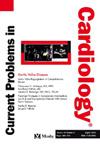竖脊肌平面阻滞治疗心脏手术后疼痛疗效的meta分析。
IF 3.3
3区 医学
Q2 CARDIAC & CARDIOVASCULAR SYSTEMS
引用次数: 0
摘要
心脏手术伴有明显的术后疼痛,需要有效的多模式镇痛来减少阿片类药物相关的发病率。本系统综述和荟萃分析评估了直立脊柱平面阻滞(ESPB)在成人心脏手术中的镇痛效果。纳入23项随机对照试验(1,612例患者)。主要结果显示,ESPB组与对照组术后24小时咳嗽疼痛评分无显著差异(MD 0.12;95% CI: -0.26 ~ 0.50;P = 0.54)。然而,ESPB在48小时时显示咳嗽和静息疼痛评分显著降低(MD -0.60;95% CI: -0.81 ~ 0.38;P50%)和中低GRADE证据强调了标准化方案的必要性。ESPB有望通过减少阿片类药物的使用和晚期疼痛来促进康复,但需要进一步的高质量试验。本文章由计算机程序翻译,如有差异,请以英文原文为准。
Meta-analysis of erector spinae plane block efficacy in managing postoperative pain following cardiac surgery
Cardiac surgery is associated with significant postoperative pain, necessitating effective multimodal analgesia to reduce opioid-related morbidity. This systematic review and meta-analysis evaluated the analgesic efficacy of erector spinae plane block (ESPB) in adult cardiac surgery. Twenty-three randomized controlled trials (1,612 patients) were included. Primary outcomes revealed no significant difference in 24-hour postoperative coughing pain scores between ESPB and control groups (MD 0.12; 95 % CI:0.26 to 0.50; P = 0.54). However, ESPB demonstrated significant reductions in coughing and resting pain scores at 48 h (MD -0.60; 95 % CI:0.81to-0.38; P < 0.00001) and 72 h (MD -0.67; 95 % CI:1.02 to-0.33; P = 0.0001), alongside reduced 24-hour morphine consumption (MD -2.04; 95 % CI:2.46 to-1.61; P < 0.00001) and shorter mechanical ventilation duration (MD -26.53 minutes; 95 % CI:41.78 to-11.27; P = 0.0007). No differences were observed in ICU/hospital stays or surgical/anesthesia durations. Subgroup analyses highlighted variability in continuous versus single-shot ESPB techniques. High heterogeneity (I² >50 %) and moderate-to-low GRADE evidence underline the need for standardized protocols. ESPB shows promise in enhancing recovery by reducing opioid use and late-phase pain, though further high-quality trials are warranted.
求助全文
通过发布文献求助,成功后即可免费获取论文全文。
去求助
来源期刊

Current Problems in Cardiology
医学-心血管系统
CiteScore
4.80
自引率
2.40%
发文量
392
审稿时长
6 days
期刊介绍:
Under the editorial leadership of noted cardiologist Dr. Hector O. Ventura, Current Problems in Cardiology provides focused, comprehensive coverage of important clinical topics in cardiology. Each monthly issues, addresses a selected clinical problem or condition, including pathophysiology, invasive and noninvasive diagnosis, drug therapy, surgical management, and rehabilitation; or explores the clinical applications of a diagnostic modality or a particular category of drugs. Critical commentary from the distinguished editorial board accompanies each monograph, providing readers with additional insights. An extensive bibliography in each issue saves hours of library research.
 求助内容:
求助内容: 应助结果提醒方式:
应助结果提醒方式:


